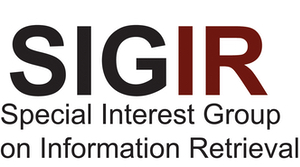Tutorials
Multi-Method Evaluation: Leveraging Multiple Methods to Answer What You Were Looking For
Organized by:
- Christine Bauer, (Johannes Kepler University Linz)
Abstract: The proposed tutorial follows the objective to raise awareness in the CHIIR community concerning the significance of using multiple methods in the evaluation of information retrieval and recommender. Employing a multi-method evaluation integrating a number of single methods (e.g., a combination of an offline prediction experiment with an open dataset and a survey with closed- and open-ended questions) allows for getting an integrated and rich picture of system quality in the context of use. The goals of this tutorial are to raise awareness of the existence and risks of “blind spots” in single-method evaluations, introduce to multi-method evaluation, show various approaches how multiple methods may be integrated, provide participants the opportunity to apply these approaches to their individual research endeavors, and receive feedback from their peers.
Co-Design to Include Users With Intellectual Disability in Information Interaction Research
Organized by:
- Laurianne Sitbon (Queensland University of Technology)
- Margot Brereton (Queensland University of Technology)
Abstract: People of all abilities deserve to be included in the research and design of information access technologies. In this tutorial, we will explore the latest frameworks and approaches in interaction design that seek to engage and design with people with diverse cognitive abilities. Frameworks on ability-based design and respectful design suggest starting from users abilities, personalising, and engaging in co-design activities in order to truly understand users. Frameworks on design-after design and co-design beyond words provide tools and approaches to engage with users with intellectual disability, who may not be verbal, in co-design exercises. This tutorial informs participants about various frameworks and ways of enacting them in a participatory and hands-on approach.
Capturing Information Behaviour in the Wild
Organized by:
- George Buchanan (University of Melbourne)
- Dana McKay (University of Melbourne)
Abstract: In this tutorial we attempt to demystify naturalistic studies of information behaviour, demonstrate their relative strengths and weaknesses, and give participants the tools to select and use in the wild methods.
Social Network Analysis as a Tool for Data Analysis and Visualization in Information Behaviour and Interactive Information Retrieval Research
Organized by:
- Florian Meier (Aalborg University, Denmark)
Abstract: Social network analysis (SNA) is an empirical approach and a set of techniques that investigates the actors, their dyadic links and the network they form. In this half-day tutorial, participants will learn about social network analysis as a tool for data analysis and visualization and how it can be applied in studies of information behaviour and interactive information retrieval. Participants will learn about its theoretical substantiation and gain practical experience by applying these theoretical concepts in a hands-on session using the open-source SNA software Gephi.









